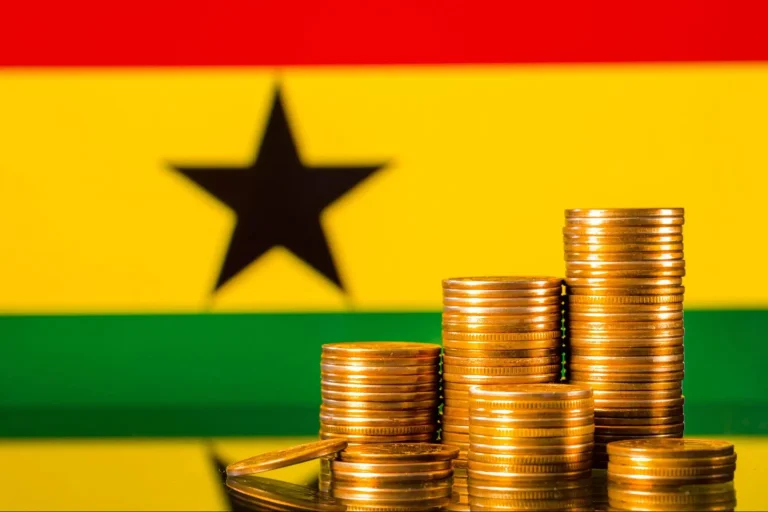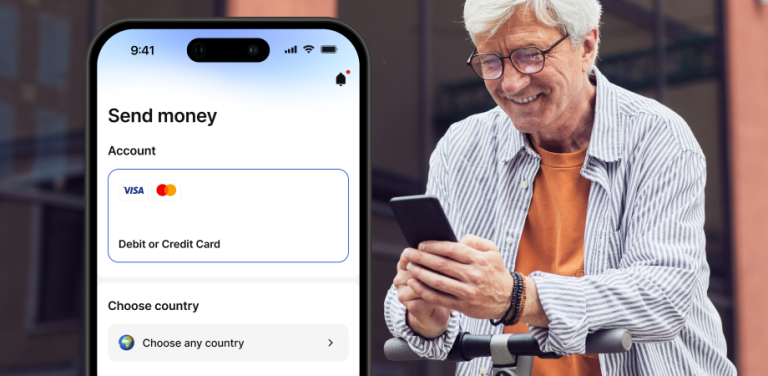The Ghanaian Economic Recovery
25 March 2024

The Challenges for Ghana
After some very challenging post-pandemic years, the Ghanaian economy looks to be in the midst of a recovery. With debt having reached massive levels, combined with a stagnating GDP, Ghana has been through some difficult recent years on the economic front. But with effective strategic implementation of significant funds received from the International Monetary Fund (IMF) and the World Bank, an economic recovery over the next five years is now an attainable goal.
You can send money to Ghana and over 100 other countries using e-Pocket.
Back in 2019, Ghana was actually one of Africa’s fastest growing countries. The economy was diversifying, which led to growing income levels and decreasing poverty rates. But despite significant growth since the introduction of a democratic political system in the 1990s, the country had still managed to accrue a lot of debt even before 2019. Then the pandemic exposed a vulnerable economy. Ghana’s national debt now stands at 105% of their annual GDP.
Along with Nigeria, Ghana is expected to see the slowest economic growth in West Africa in 2024. The country saw a 1.5% growth last year, which is expected to grow to 2.8% this year, but this number is still well behind other countries in the region. The Ghana Cedi depreciated by 6.6% in relation to the US dollar between February and November, with this number having been 20.6% in January 2023.
With this context, there can be no doubt that Ghana’s economy has been in a difficult situation of late. But there seems to be some light at the end of the tunnel.
Funding Can Propel a Recovery in the Ghanaian Economy
In July 2022 – in the midst of the economic and financial crisis – Ghana requested an IMF-supported program. Approved in May of 2023; the program will send SDR 2.242 billion, which equates to around $3 billion USD, over the course of 36 months to Ghana.
The IMF explained that the decision to grant the funding was “based on the government’s Post COVID-19 Program for Economic Growth (PC-PEG), which aims to restore macroeconomic stability and debt sustainability and includes wide-ranging reforms to build resilience and lay the foundation for stronger and more inclusive growth.”
The economy of Ghana was devastated by the effects of the Covid-19 pandemic and the complicated geopolitical situation, which led to global monetary policy tightening, leading to less overseas investment in Ghana. The resulting loss of access to the international market led to economic results that are only now being recovered from.
The program is currently being implemented by the authorities, with the aim of restoring macroeconomic stability. As a result, the budgets for 2023 and 2024 had a specific focus on fiscal consolidation and sound public finances. As the IMF explains: “These efforts are underpinned by structural reforms aimed to enhance domestic resource mobilisation, strengthen public financial management, and create a business environment that better fosters private sector development.” The goal is to provide “a fairer distribution of its rewards among Ghana’s people”.
Whilst these impacts will be easier to assess after a few years, there is hope the Ghanaian economy is set to recover. In December 2023, inflation was at 23%. This is certainly a high number, but is nonetheless a significant drop from the 54% of December 2022. The Bank of Ghana is continuing with policies designed to further reduce inflation. This is expected to see significant growth to the GDP, with statista predicting a 2.69% growth in 2024, and then roughly a 5% growth each year until 2028.
Whilst the contributions of the IMF are aiming to create macroeconomic and financial stability, the World Bank is concerned with long-term economic development, with the aim of reducing poverty. In January, the World Bank approved “a $300 million Development Policy Operation for Ghana. The First Resilient Recovery Development Policy Financing is a critical contribution by the Bank’s International Development Association* (IDA) to help Ghana’s economic recovery and support the country’s resilient and inclusive growth.”
According to Ousmane Diagana, the World Bank Vice President for Western and Central Africa, this funding is aimed at “Restoring fiscal and debt sustainability, bolstering growth prospects, curbing inflation, and protecting the most vulnerable.” Diagana added that these “are urgent priorities for Ghana.” With effective strategic implementation, this funding will see more foreign investment in Ghana and lead to a much higher quality of life for its people.
Ghana Should be Cautiously Optimistic
A research fellow at the Institute for Fiscal Studies in Ghana, Leslie Dwight Mensah, believes the funding is leading to reforms of Ghana’s economy. Mensah said the IMF program has halted the economic downturn, explaining that “If we say the economy has turned a corner, it signifies that the economic situation has begun to improve.”
Steps taken in the past also have the potential for tremendous long-term impacts. According to Africa.com, a move towards digitisation has been driving Ghana’s development for the last seven years. They have stated that “Since 2017, Ghana’s digitalisation drive has seen the successful implementation of a national biometric identification system, a property address system, mobile money interoperability between all telephone networks and financial institutions, digitisation of government services at the DVLA, passport offices, NHIS services, port operations, delivery of essential drugs through drones, among many others.” All of these advancements improve connectedness and efficiency, which makes life easier for Ghanaians, as well as their economy.
Ghanaian Vice President Dr. Mahamadu Bawumia believes digitisation is transforming the economy. He explained that “The goal, upon assumption of office, was to quickly transform our economy by leveraging on technological innovation as a means to leapfrog the development process, overcome legacy problems and improve both economic and public sector governance. This is why digitalisation has been a major area of focus for our government; to build a new system through digital transformation.” Indeed, the reality of the modern world means that falling behind technological advancements means falling behind in economic opportunity and development. Bawumia added that “Our focus on digitisation is building efficient digital platforms for government business, and deepening financial inclusion.”
e-Pocket are a testament to the advancements that can be made when the world becomes more digitised. With such a digitised world, greater competition has emerged, which means you send money to Ghana without paying exorbitant fees.
Conclusion
Ghana still faces many challenges on the economic front. The funding they are receiving can go a long way to reducing national debt, and start growing the GDP again at a more satisfactory rate. Effective strategy and implementation can see Ghana move into a much stronger economical situation over the next five years and beyond.
Learn more about the countries on the e-Pocket platform by visiting our blog page. You can send money to the other African countries on our platform: Benin, Botswana, Cameroon, Congo, Gambia, Kenya, Liberia, Malawi, Senegal, Uganda, Zambia, and Zimbabwe.




